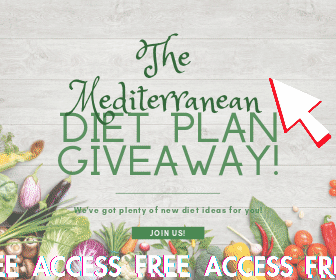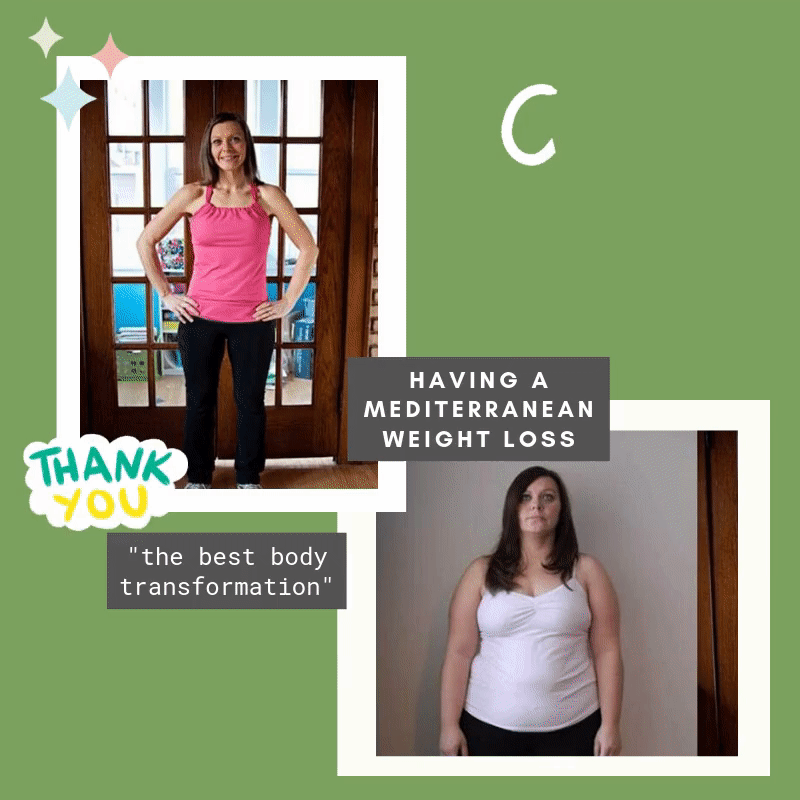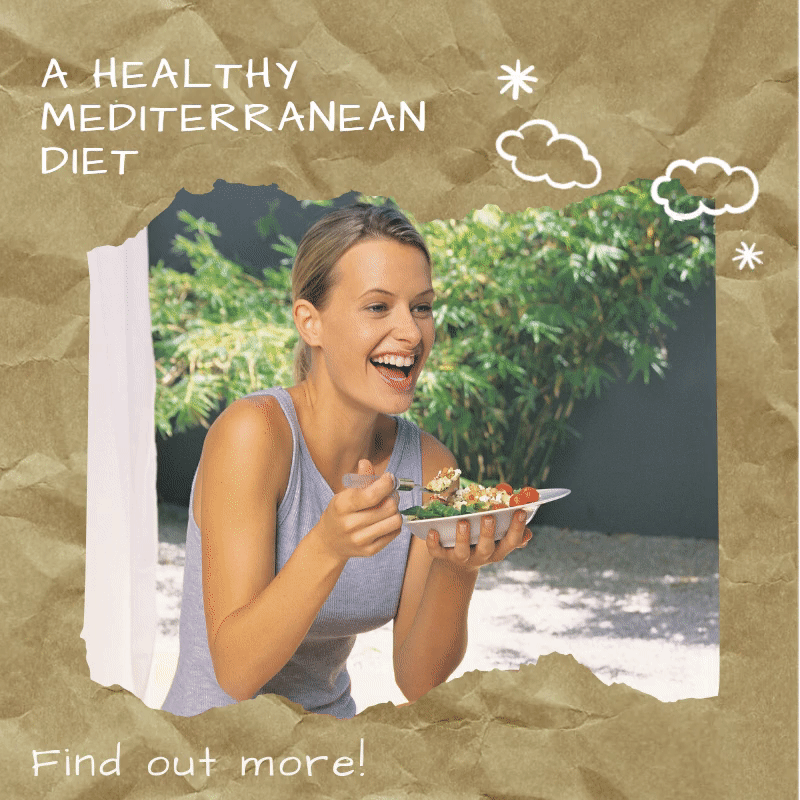What Do You Eat On The Mediterranean Diet?
Jan 5, 2025
What does the Mediterranean diet consist of?
What can you eat on the Mediterranean diet?
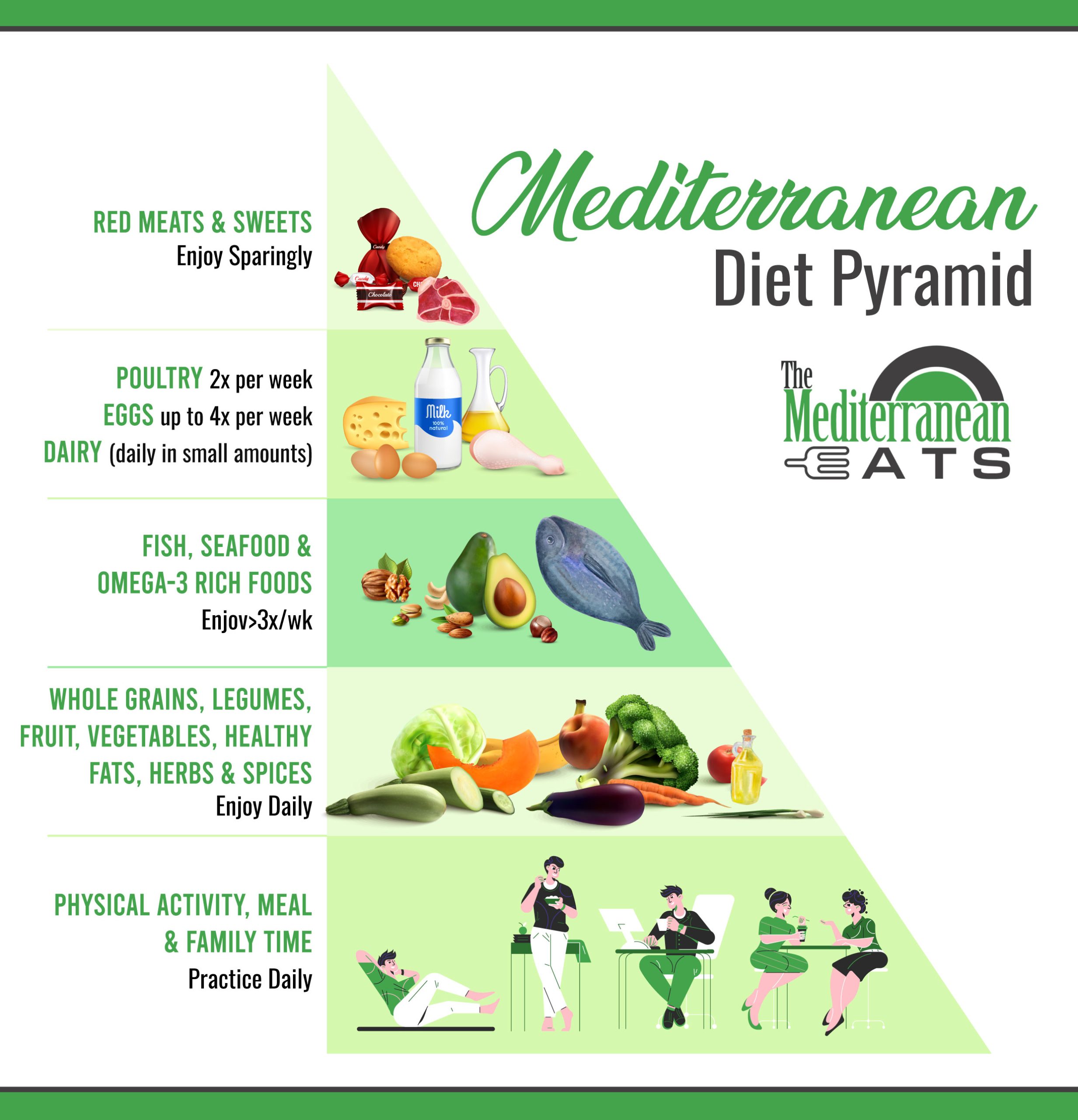
So you want to start on the Mediterranean diet but you're not sure of one major thing: What can you eat?
What does the Mediterranean diet consist of?
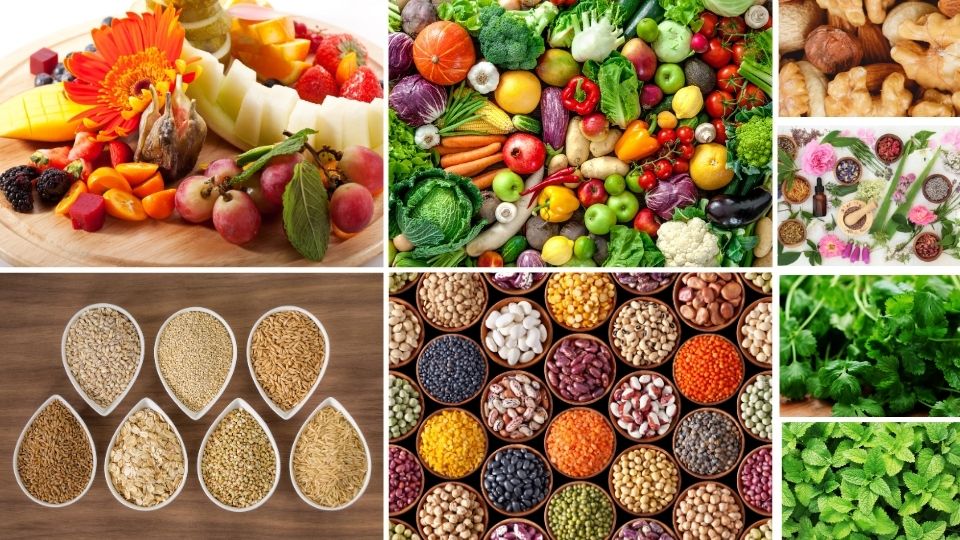
The Mediterranean diet is a pattern of eating that focuses more on fruits, vegetables, whole grains, beans, nuts, legumes, lean proteins from fish and poultry, good fats from olive oil, and some dairy.
While limiting consumption of sweets and red meats.
To dig deeper you should be doing this:
Eat more plant-based foods
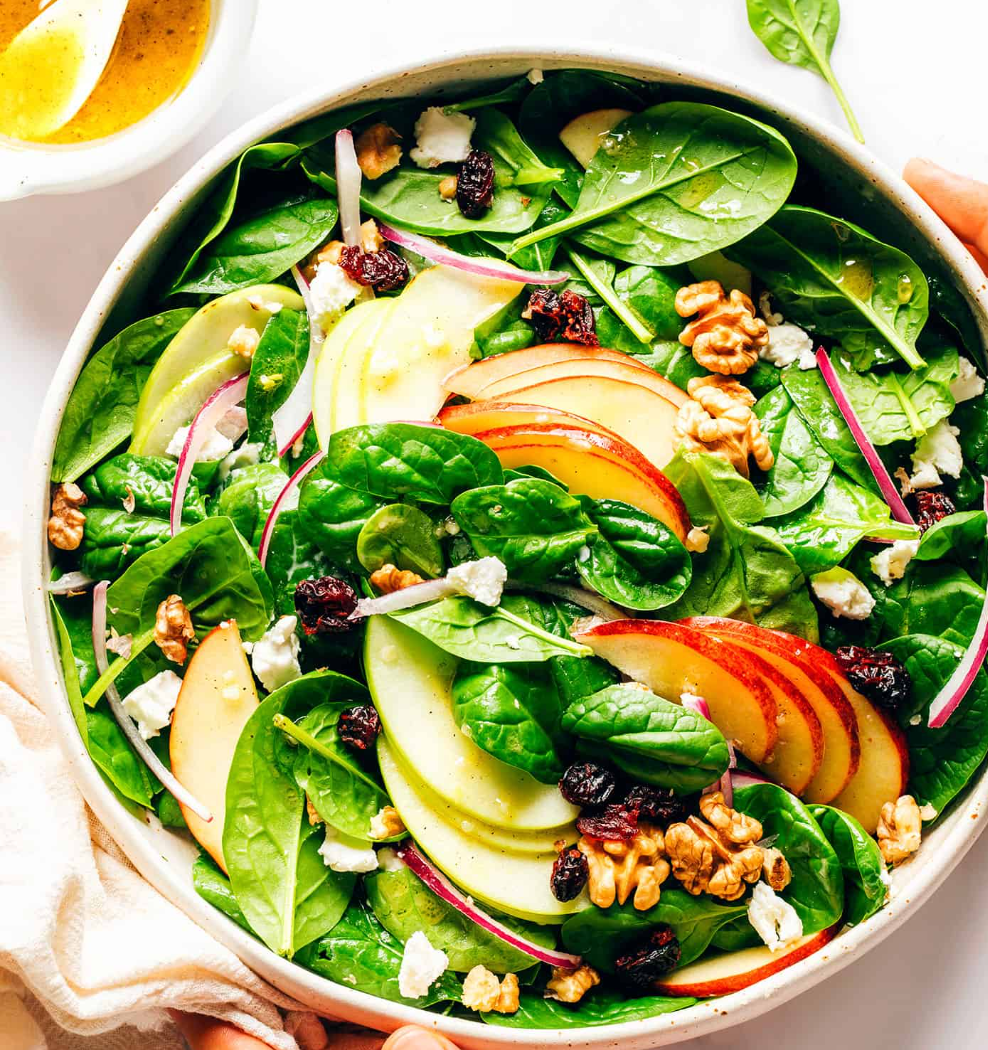
To start, the Mediterranean diet is a plant-forward diet, which means it is high in plant-based foods.
This does not mean you have to become vegetarian or go vegan to eat the Mediterranean way ...
It simply means you want to get more plant-based foods in your diet - think rainbow eating!
Other important plant-based foods to eat on the Mediterranean diet include:
The CDC reported that the vast majority of Americans (about 90%) don’t get enough fruits and vegetables in their diets. So, just increasing your fruit and vegetable intake is a great place to start!
Eat some fish and lean proteins, moderately
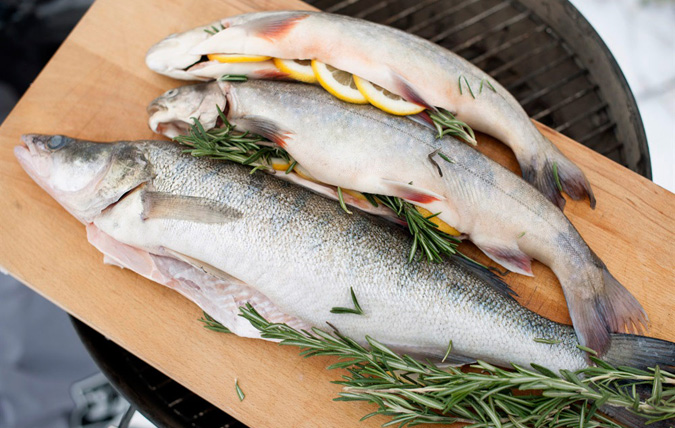
Once you get a solid foundation from eating more plant-based foods, fill in the gaps by consuming foods that provide good lean proteins, healthy fats, complex carbohydrates, fiber. Eat the following in moderate amounts:
Avoid processed foods
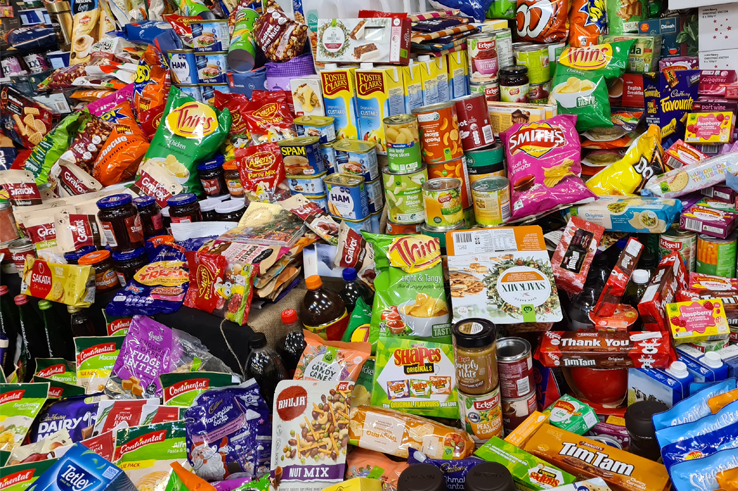
One of the things that happen more naturally when eating the Mediterranean diet is that we end up eliminating, or at least limiting, harmful processed foods.
By getting more of the good stuff-- plants, lean proteins, and good fats...
We naturally reduce our intake of unhealthy processed foods that are high in sodium, refined sugar, and saturated fat - dietary patterns that when over consumed can lead to weight gain, diabetes, high cholesterol, and heart problems.
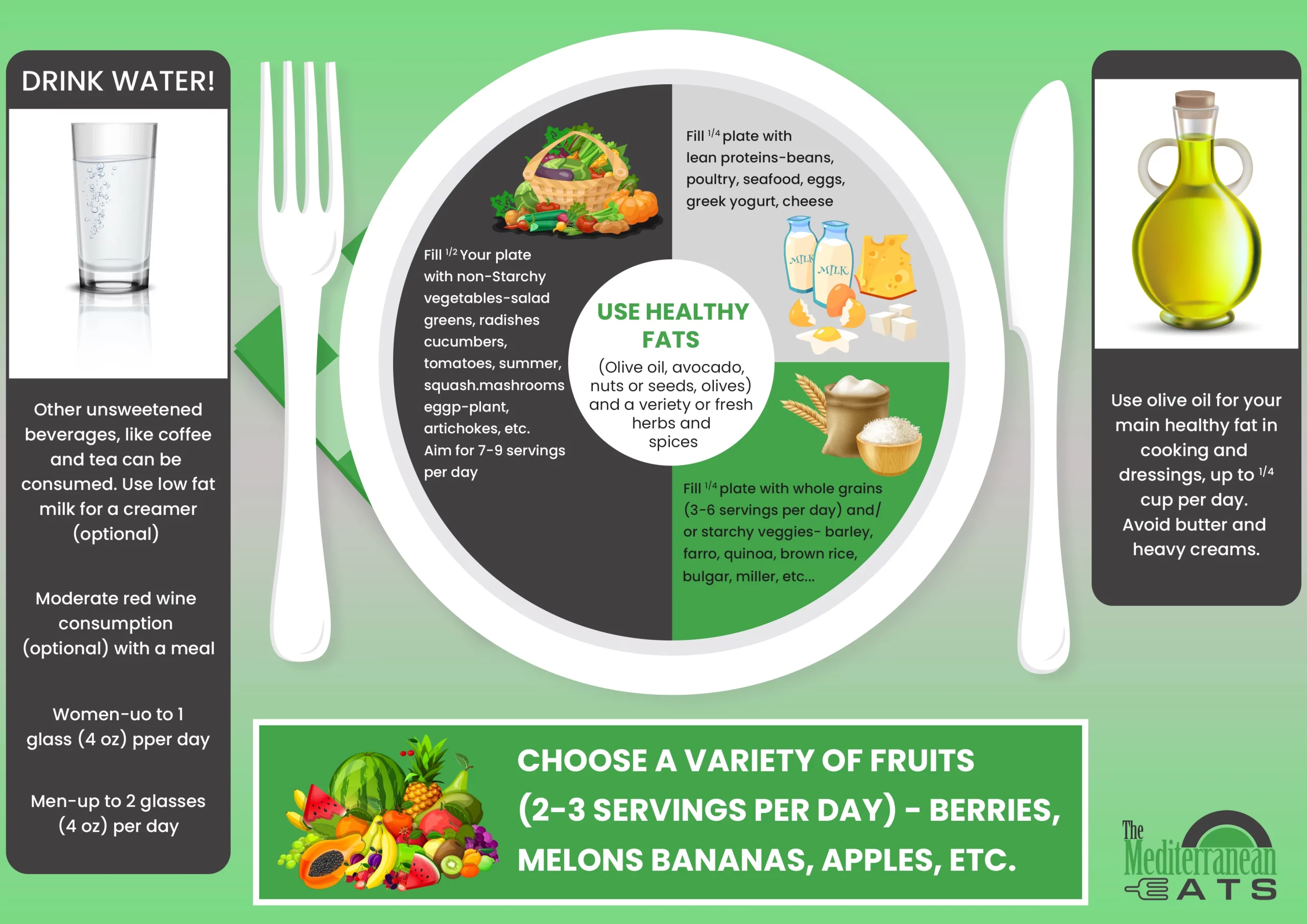
Carbs, fats, and proteins: Micronutrients and the Mediterranean diet
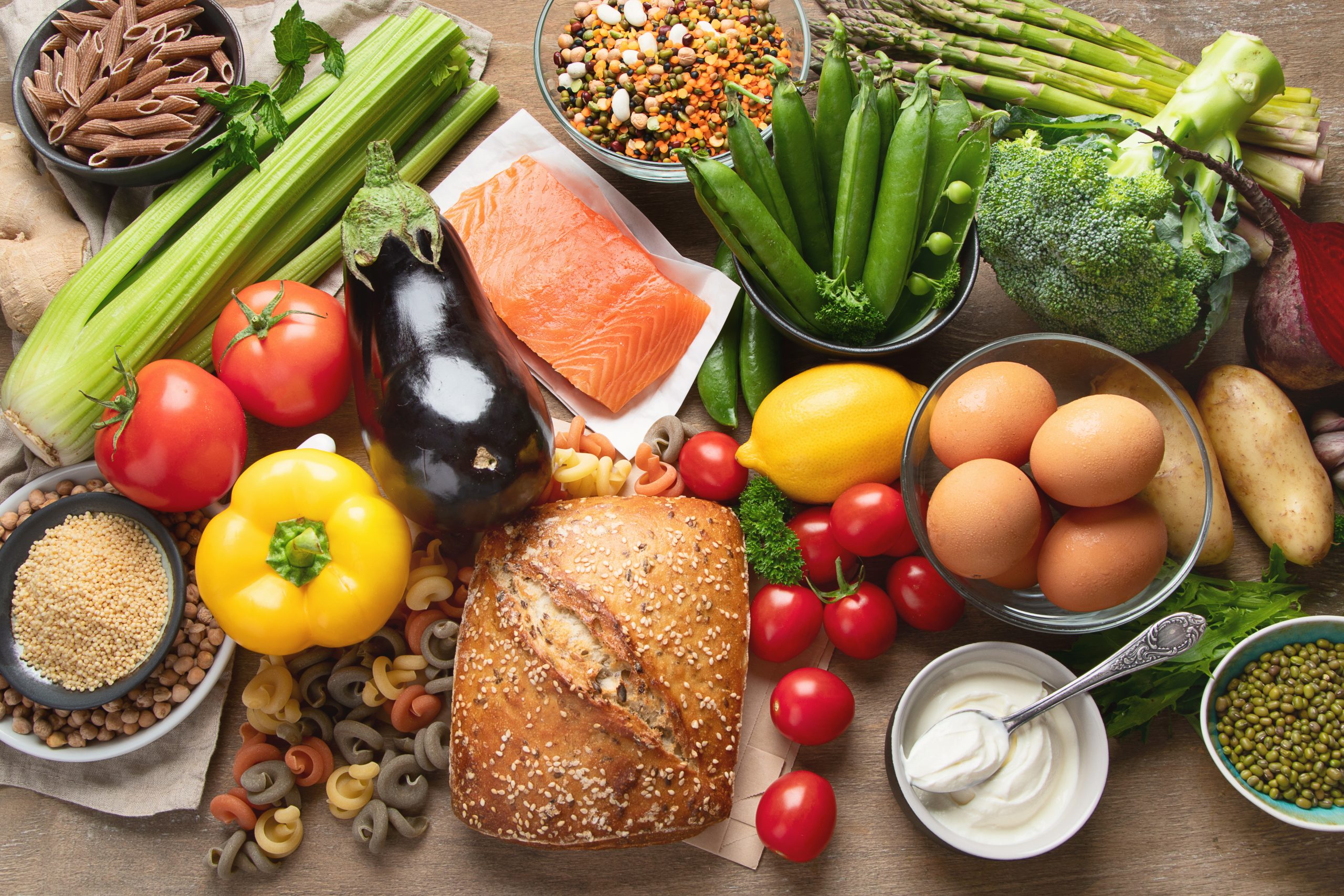
No, we are not about to count macros here. Macronutrients are the nutrients we want to consume in the largest quantities and that provide us with energy (calories).
There are three macros - protein, fat, and carbohydrates.
Protein and carbohydrates provide 4 calories per gram while fat provides 9 calories per gram.
Each of these macros has a place in our diets and it’s not in the “counting” sense you may previously have heard.
It’s also important to note that every single person’s ideal range will vary and depend on sex, age, physical activity, height, weight, and body composition.
Carbs
- You have to understand that carbohydrates will make up the largest portion of our diets (generally, about 45-65% of your daily intake). But these are not carbs as we think of them in a Western diet like pizza, fries, chips, or refined snacks. On the Mediterranean diet, these are primarily from nutritious foods, plant-based carbs like fruit, veggies, whole grains, beans, legumes, and some animal derived carbs like yogurt and milk.
Fats
- Since fats are the most nutrient-dense (provides the most energy), we don’t need as much throughout the day (generally, about 20-35% of your daily intake from good fats). This is where my favorite use of extra-virgin olive comes into play. We can easily meet our fat goal by cooking with EVOO - yes it’s perfectly safe to cook with, or drizzling some on top of our home-cooked meals. Also include some fat from fatty fish like salmon, herring, tuna, nuts, seeds, cheese, and full-fat dairy products.
Protein
- Protein is needed the least amount but still very important. You can meet your protein needs through a mix of plant-based and animal-based foods. Plant-based sources of protein include nuts, seeds, beans, legumes, whole grains, and soy foods and products like edamame and tofu. Just because something doesn’t come from the region of the Mediterranean doesn't mean you can’t have it. Animal sources of protein include fatty fish, poultry, eggs, and dairy.
Mediterranean diet myths busted!
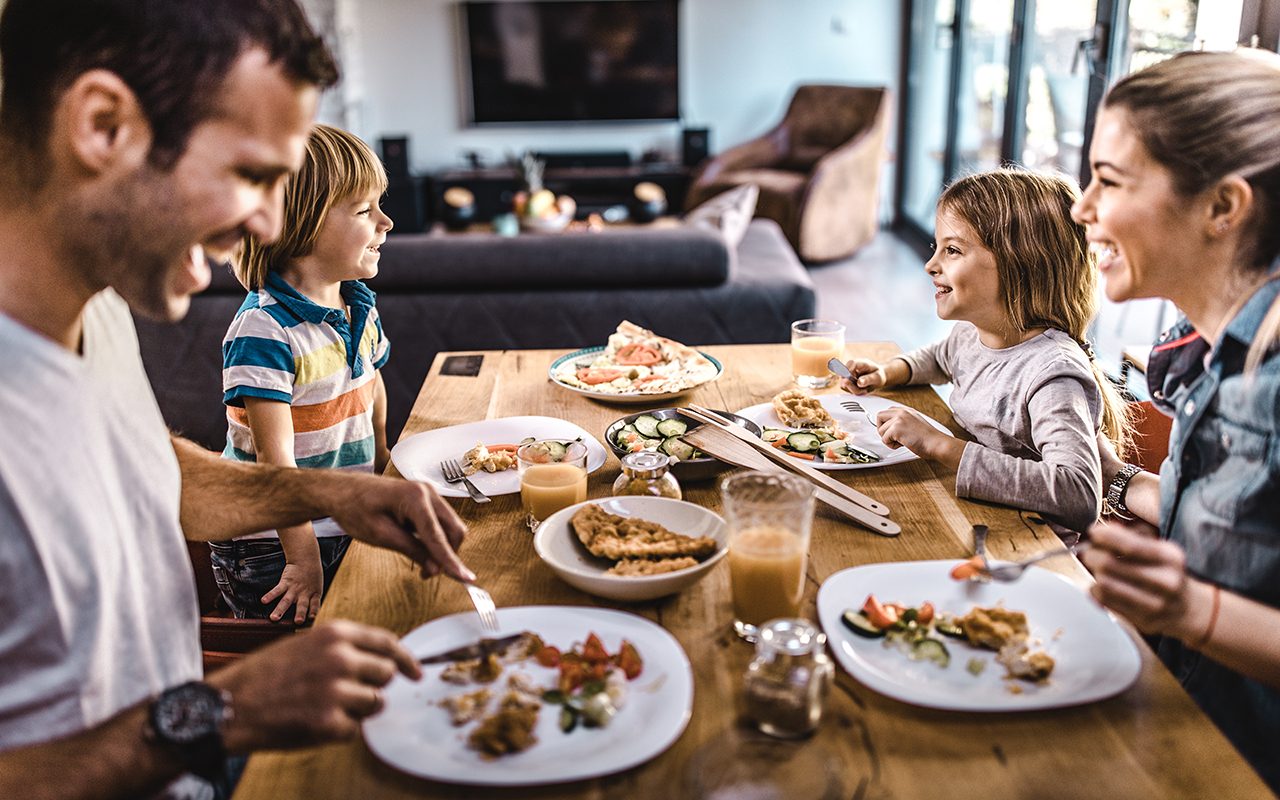
Myth 1: The Mediterranean diet does not work outside the Mediterranean
False! This sensible way of eating is easy to implement no matter where you live. Most ingredients used in Mediterranean cooking, from produce to fish, nuts, seeds, and grains, are available in most grocery stores.
Myth 2: You can't eat red meat or sweets
False! This sensible way of eating is easy to implement no matter where you live. Most ingredients used in Mediterranean cooking, from produce to fish, nuts, seeds, and grains, are available in most grocery stores.
Myth 3: You can only eat fresh produce
False! A vegetable in any form is better than not. When fresh produce is in season and available at a good price, of course it is great to buy.
But quality frozen produce, picked and flash-frozen at its peak, is a great way to increase your intake of fruits and vegetables without ruining your budget. You can make the choice.
Myth 4: You have to cook everything from scratch
False! In Mediterranean cooking, there are many ways to use canned beans, chickpeas, sauces, and more to save time in a pinch. Give your beans a quick rinse before using them in a delicious minestrone or ribollita. And another thing that you can buy ready is rotisserie chicken. In a pinch, I've turned it into a healthy chicken salad and even thrown it in avgolemono soup.
Myth 5: You can't cook with olive oil
False! Olive oil is the cooking fat of choice for many Mediterranean countries. It might lose some of its unique flavor during cooking, but quality olive oil does not become unhealthy, and depending on the quality of the oil and cooking temperature, you can use it more often than you think.
How can you tell if your EVOO is good quality? Give it a taste!
It should taste great and should give a little burn in the back of the throat.
Takeaways
As you can see, there are no definitive diet rules, just general guidelines and principles to help you get the most variety out of your unique Mediterranean eating plan.
A balance of all macros is what makes the Mediterranean diet ideal for weight loss, glucose and lipid management, and the prevention of major cardiovascular events.
Plus you don’t have to make everything from scratch or spend your savings improving your health.
Sounds like a win-win to me!
How to get started?
If you like the Mediterranean diet and want recipes to get started.
We do recommend getting The 21 Day Mediterranean Diet Challenge.
It's a weekly Mediterranean Meal Plan, grocery lists and recipes to help you get started.
Let us take all the hard work out of the Mediterranean diet for you!
Hundreds of women are experiencing the same struggle you’re going through right now.
- 21-days of meal planning, done for you
- Complete shopping lists, already organized
- No Stress, Feel happier and energetic
Go ahead and click here for The 21 Day Challenge
Want easy Mediterranean recipes and meals that's planned for you?
© {2025} The Mediterranean Eats. All rights Reserved | Privacy Policy | Disclaimer
